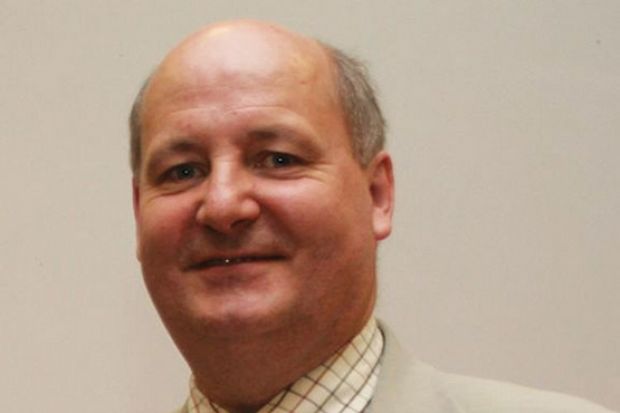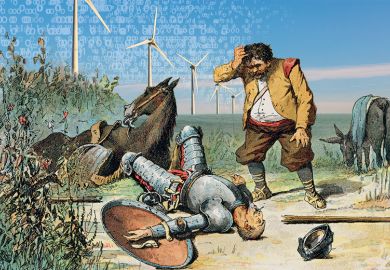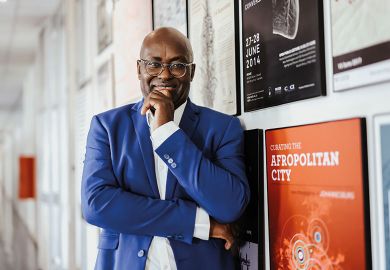Long-range teaching: John Brewer
A leading sociologist has called for a “new public social science” based on the core values needed to address the major challenges of the 21st century.
John Brewer, the former president of the British Sociological Association, is now professor of post-conflict studies at Queen’s University Belfast. In his new book, The Public Value of the Social Sciences: An Interpretative Essay, he sets out a vision encompassing teaching, research and civic engagement.
In university teaching, he told Times Higher Education, “we need to move beyond rather insular profession-oriented courses and introduce courses that have breadth rather than depth, that deal with some of the big issues, that bring together teachers from a variety of different disciplines”.
Thus, courses on the Global South “cannot just rely on economists”, and programmes on climate change “need environmental scientists, biologists and human geographers”.
“At the back of all this is my vision for the public responsibility of social science: we’re about educating global citizens for the 21st century, not just factory-like graduates with their 2:1s,” Professor Brewer said. “It’s about inculcating within our students a set of values, an attitude towards others, that realises the public value.”
Although he is well aware that many people would like to remove all talk of “values” from the social sciences, Professor Brewer said he sees himself instead in the tradition of 18th-century Scottish moralists such as Adam Smith and David Hume - “the cohort of people who gave us social science in the first place as it grew out of moral philosophy. They did not see any incompatibility between their practice as scientists and their argument that society was based on values.”
In the area of research, Professor Brewer said he believes that the “narrow impact agenda” has diverted social scientists “away from realising that the research they do by its very nature has high impact”.
“We need to see the impact that it has in a much broader way. Impact for society rather than impact for value for money: we ought to be changing the language,” he said.
Professor Brewer said he was committed to major interdisciplinary and even post-disciplinary collaborations that would allow social scientists to play a significant role in the understanding of issues such as terrorism, climate change, ageing populations, economic inequality and political instability.
Yet he remains concerned that “the research excellence framework will increasingly become an article-led assessment exercise”, focused on what amount to “8,000-word soundbites”, when society urgently needs to “retain a book culture”.
“There is a tension within the impact agenda,” he added, “that is almost pushing people’s attention away from the very big issues that the government wants us to be dealing with in the first place.”
But although he would like the structures social scientists are working within to change, Professor Brewer also wants them to put their own houses in order.
This is partly about writing more accessibly, he said, but it also requires a willingness on the part of academics to “engage upwards as well as downwards”, reaching out to movers and shakers as well as to “the relatively disempowered organic public”.
“We can’t deal with big issues,” he concluded, “by treating government, NGOs [non-governmental organisations], business and large international bodies as strangers, beyond the pale. We need to speak truth both to the powerful and to the powerless.”
Register to continue
Why register?
- Registration is free and only takes a moment
- Once registered, you can read 3 articles a month
- Sign up for our newsletter
Subscribe
Or subscribe for unlimited access to:
- Unlimited access to news, views, insights & reviews
- Digital editions
- Digital access to THE’s university and college rankings analysis
Already registered or a current subscriber? Login




